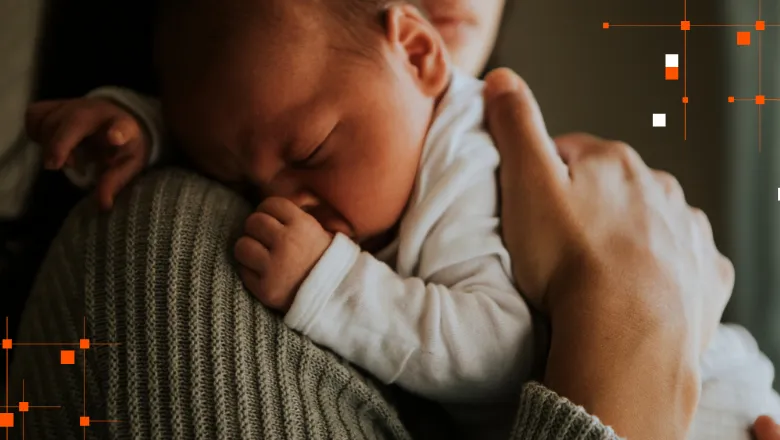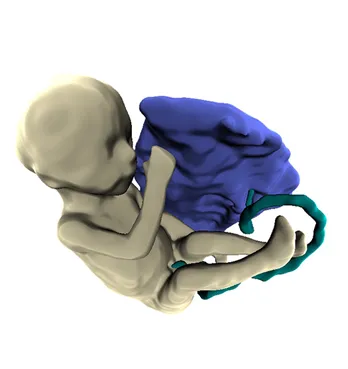The aim is to be able to provide an individual woman with more personalised statistics so everybody can have a better idea of how things are likely to progress.
Mary Rutherford, Principal Investigator, Professor of Perinatal Imaging King’s College London
14 December 2023
New imaging study set to provide safer birthing predictions
King’s researchers in collaboration with University College London are embarking on a four-year study using multiple imaging methods to gather information about first-time mothers and their babies that will better predict safe ways of birthing.

First-time mothers have about a 57% chance of experiencing an uncomplicated vaginal birth, while many women will likely experience an emergency caesarean section or an assisted instrumental delivery. These emergency measures can have short- and long-term effects for both mother and baby.
Principal Investigator of the study Mary Rutherford says, “While this has become very normalised, it is not an acceptable situation.
“If not properly discussed, first-time mothers can have unrealistic expectations and are not prepared for what might be a likely scenario, which is a long labour or emergency caesarean, which may be in the middle of the night. By that time the mother is exhausted, there is increased risk of infection for the mother and baby and of injuries to the baby’s brain.”
Currently, doctors and clinicians are not able to make strong predictions about which women will likely encounter these difficulties, the miBirth study aims to support stronger predictions.
“For me personally as a doctor, when I see somebody planning their first vaginal birth and they want more information- they want help making a decision on which route to go down and how to proceed- I find it frustrating that I can't give them any data other than the National Statistics. And so do they.
“I'm hoping this project will completely change that. Obstetrics is all about empowering women to make the best decisions for themselves in their birthing experience, and they need information to do that" says Simi Bansal, Clinical Fellow, Guys and St Thomas Hospital and King’s College London.

The study will follow 500 first-time mothers or women who have not previously had a vaginal birth using magnetic resonance imaging (MRI) and ultrasound imaging and assess the womb, cervix, pelvis, placenta and the baby in late-stage pregnancy. This information will be combined with additional clinical maternal and pregnancy details.
Utilising this information, researchers will create a model to identify the factors that likely determine a woman's ability to have an uncomplicated vaginal birth, and better predict birthing outcomes before a woman goes into labour.
While there are presently many known risk factors, they are unable to predict birth outcomes individually, and there is no model that sufficiently combines them.
“Say a mother is given a 20% chance of an uncomplicated vaginal birth, she might decide with her obstetrician, let's go straight for an elective C-section, but she might also be interested in still trying for a natural birth and proceed to an emergency C section at an earlier time point if labour progress is slow.
"Her clinical team can factor in a low risk of success and say, we'll see how you go for the first six hours and we'll then reappraise. So, the mother won’t be in labour for 36 hours, only to end up with an emergency C-section when everybody's exhausted and the risks to mother and baby have increased considerably," Mary says.
There's a lot of anxiety and fear around the birthing experience and I think social media does not help with that. This study is as much about giving women information to not go ahead with a potential vaginal birth, as it is to give them the confidence to go ahead with it, instead of requesting a caesarean birth as a first port of course. So, it will work both ways in empowering mothers.
Simi Bansal, Clinical Fellow, Guys and St Thomas Hospital and King’s College London
The miBirth study is funded by the UK Medical Research Council. You can find out more about the study at Mibirthstudy.com


